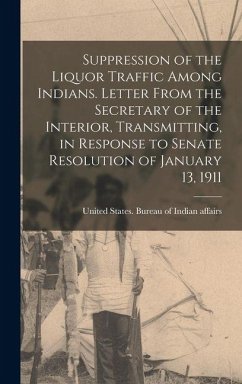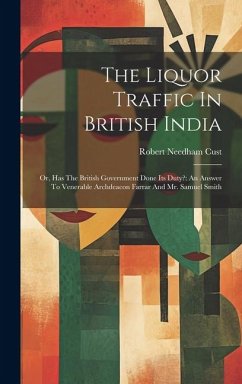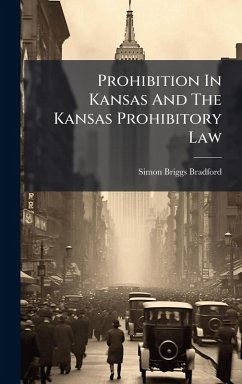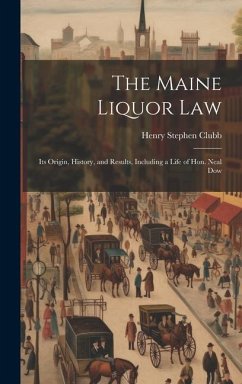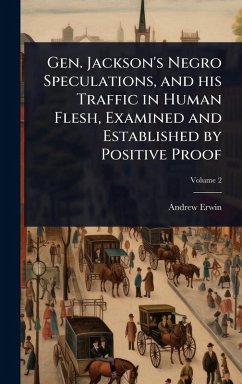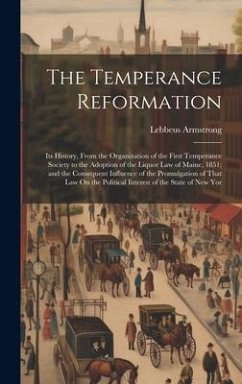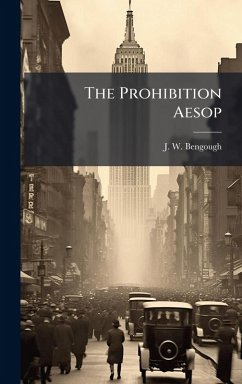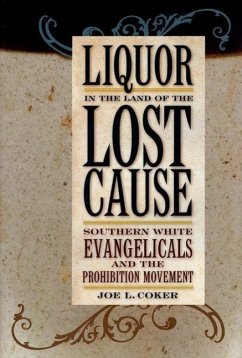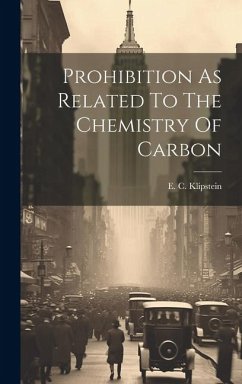
The Prohibition of the Liquor Traffic
Versandkostenfrei!
Versandfertig in über 4 Wochen
30,99 €
inkl. MwSt.
Weitere Ausgaben:

PAYBACK Punkte
15 °P sammeln!
"The Prohibition of the Liquor Traffic" by Samuel Milton Vernon offers a detailed examination of the movement to outlaw alcohol in 19th-century America. This book delves into the legal, social, and moral arguments surrounding the prohibition debate, providing insights into the temperance movement's aims and the societal forces that shaped it. Vernon explores the historical context of liquor laws, the evolving attitudes toward alcohol consumption, and the various strategies employed by prohibition advocates. This work provides valuable perspectives on a pivotal era in American history, marked b...
"The Prohibition of the Liquor Traffic" by Samuel Milton Vernon offers a detailed examination of the movement to outlaw alcohol in 19th-century America. This book delves into the legal, social, and moral arguments surrounding the prohibition debate, providing insights into the temperance movement's aims and the societal forces that shaped it. Vernon explores the historical context of liquor laws, the evolving attitudes toward alcohol consumption, and the various strategies employed by prohibition advocates. This work provides valuable perspectives on a pivotal era in American history, marked by significant social and legislative changes. Readers interested in the history of American social reform, the temperance movement, or the legal history surrounding alcohol regulation will find this book to be a compelling and informative resource. This work has been selected by scholars as being culturally important, and is part of the knowledge base of civilization as we know it. This work was reproduced from the original artifact, and remains as true to the original work as possible. Therefore, you will see the original copyright references, library stamps (as most of these works have been housed in our most important libraries around the world), and other notations in the work. This work is in the public domain in the United States of America, and possibly other nations. Within the United States, you may freely copy and distribute this work, as no entity (individual or corporate) has a copyright on the body of the work. As a reproduction of a historical artifact, this work may contain missing or blurred pages, poor pictures, errant marks, etc. Scholars believe, and we concur, that this work is important enough to be preserved, reproduced, and made generally available to the public. We appreciate your support of the preservation process, and thank you for being an important part of keeping this knowledge alive and relevant.



